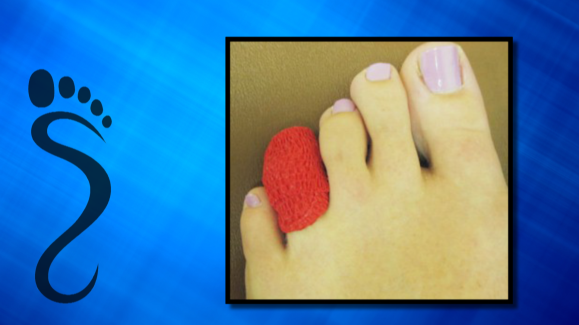 High heels and other ill-fitting shoes could be a prime cause of Morton’s Neuroma. Neuroma affects the nerves located between the toes, creating a sensation similar to stabbing while walking. It is believed that neuroma stems from compression, injury or damage to the nerve. Therefore women who wear high heels or narrow-fitting shoes are at particular risk to developing the condition. The nerve repairs itself if left untreated, using fibrous tissues that create thickening and enlargement. The disorder is aggravated by irregularities that interfere with optimal foot function, such as high arches, overpronation, and hypermobility.
High heels and other ill-fitting shoes could be a prime cause of Morton’s Neuroma. Neuroma affects the nerves located between the toes, creating a sensation similar to stabbing while walking. It is believed that neuroma stems from compression, injury or damage to the nerve. Therefore women who wear high heels or narrow-fitting shoes are at particular risk to developing the condition. The nerve repairs itself if left untreated, using fibrous tissues that create thickening and enlargement. The disorder is aggravated by irregularities that interfere with optimal foot function, such as high arches, overpronation, and hypermobility.
The disorder can be avoided by wearing shoes that are wide and deep in the toe area and that do not apply pressure to the metatarsals, or bones in the balls of your feet. Metatarsal support pads can also help by removing pressure from the nerve and promoting your foot’s natural anatomical position.
Morton’s neuroma can be a difficult condition to contend with. If you are experiencing symptoms of Morton’s Neuroma, speak to podiatrists Dr. Michael Newman and Dr. Denise Kohler of Pennsylvania. Our doctors will diagnose and treat your feet accordingly.
Morton’s Neuroma
Morton's neuroma is a painful foot condition that commonly affects the areas between the third and fourth toe and the ball of the foot, although other areas of the foot are also susceptible to this condition. Morton’s neuroma is caused by an inflamed nerve in the foot that is being squeezed and aggravated by surrounding bones. Women are more likely than men to have an occurrence of this foot condition.
What Increases the Chances of having Morton’s Neuroma?
-Ill-fitting high heels or shoes that add pressure to the toe or foot area.
-Jogging, running and any sports that involve constant impact to the foot area.
-Flat feet, bunions, and any other foot deformity may put you at a higher risk for developing Morton’s neuroma.
If you suspect that you may have this condition, you should visit your podiatrist. A podiatrist will first conduct a thorough physical examination to check for palpable masses between the bones of the foot.
If you have any questions, please feel free to contact one of our offices located in Plymouth Meeting and Ambler, PA. We offer the newest diagnostic and treatment technologies for all your foot and ankle needs.
Read more on Morton’s Neuroma
